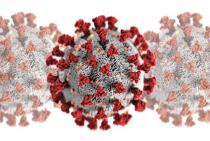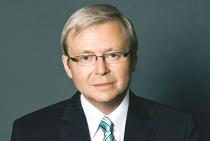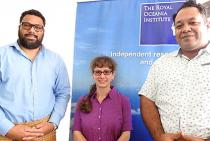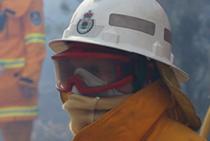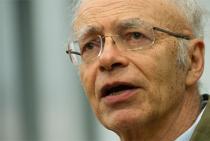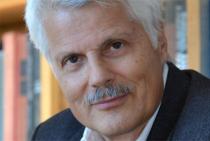A pandemic is enveloping the world, endangering the lives and livelihoods of millions of people. As US President Donald Trump desperately seeks to shift blame for his own ineptitude, China is laying the groundwork for global leadership in the post-COVID-19 era. Thanks to Trump, the US will almost certainly lose the great-power competition – and countless lives. By Vali Nasr
You are here
Results for Opinion
Thursday 26 March 2020
Suva, Fiji
Fakamolemole pe kae tu’u atu e ki’i tohi ni na’a a’u atu ai homau le’o ki hotau ki’i Pule’anga. - Leonaitasi Taukafa.
Tuesday 24 March 2020
Baltimore, USA
It is likely that eventually, CoViD-19 will become endemic (commonly recurring in the community), and most of us will get infected, says Justin Lessler, an associate professor of Epidemiology at the Johns Hopkins Bloomberg School of Public Health in the United States, stressing that it is most important to slow the speed of transmission.
Tuesday 24 March 2020
Cambridge-MA, USA
As the coronavirus pandemic shuts down the world’s economies, stock markets plummet, and unemployment rises, policymakers will be forced to figure out how to contain the outbreak while preventing financial and economic collapse. Most economic proposals in developed countries focus on cash payments to people, deferred tax payments, and business bailouts. But biomedicine is critical to saving the economy ...a simple immunity test could tell us who doesn’t need to be taken out of economic circulation... and impede an economic Armageddon.- Mark Roe.
Saturday 14 March 2020
Berlin, Germany
No one knows where or how fast a new virus will spread. We cannot calculate the risks with confidence, and we will know only in hindsight whether we overreacted or underreacted. Given this uncertainty, how we respond to a viral outbreak is as crucial as the nature of the pathogen. And how we respond to the COVID-19 coronavirus should be guided by what we have learned from past viral epidemics. - By Gerd Gigerenzer.
Monday 9 March 2020
New York, USA
Like climate change, the COVID-19 pandemic is a perfect example of why we need multilateralism in a globalized world. Rather than resorting to thinly veiled racism and isolationist policies, global leaders – particularly the United States – should have started organizing a collective response weeks ago. China’s experience with the virus in January and February is likely to be repeated in much of the rest of the world in March and April. We should be preparing intelligently...not succumbing to irrational panic. By Kevin Rudd.
Tuesday 3 March 2020
Princeton, USA
The apocalyptic images of the locked-down Chinese city of Wuhan have reached us all. The world is holding its breath over the spread of the new coronavirus, COVID-19, and governments are taking or preparing drastic measures that will necessarily sacrifice individual rights and freedoms for the general good. ...But few mention, let alone confront, the underlying cause of the epidemic. - Peter Singer.
Friday 21 February 2020
 Premium content
Premium content
Nuku'alofa, Tonga
As strategic and economic competition heats up in the region, Tonga is becoming increasingly important to old and new partners, and it's useful to look at perceptions of Tonga and the region, Canadian author and strategic thinker, Cleo Paskal, told The Royal Oceania Institute in Nuku'alofa this week.
Thursday 13 February 2020
Nuku'alofa, Tonga
Isn't it unusual that there has not been a sitting of Parliament to welcome in a change of government, formed under a new Prime Minister in October last year? - Editor's Comment, by Pesi Fonua.
Wednesday 5 February 2020
Potsdam, Germany
Today’s leaders must not bequeath a dangerously destabilized planet to future generations. This is why the Nobel Foundation is hosting its first-ever Nobel Prize Summit, with the theme “Our Planet, Our Future,” in Washington, DC, from April 29 to May 1. The summit – supported by the US National Academy of Sciences, the Potsdam Institute for Climate Impact Research, and the Stockholm Resilience Centre/Beijer Institute – will bring together more than 20 Nobel laureates and other experts from around the world to explore the question: What can be achieved in this decade to put the world on a path to a more sustainable, more prosperous future for all of humanity? By Johan Rockström, Lars Heikensten, and Marcia McNutt.
Monday 3 February 2020
New York, USA
Some fear that the timing of China’s coronavirus outbreak – at the start of the country's week-long New Year celebration, and in the middle of traditional school-break travels – will exacerbate the economic fallout from the epidemic. But three important factors may limit the virus’s impact on Chinese and global GDP. ...I expect that both the Chinese authorities and the World Health Organization will declare the epidemic to be under control by early April. By Shang-Jin Wei.
Friday 24 January 2020
Nuku'alofa, Tonga
Next year, on 4 January 2021, it will be a decade since Tonga's Democratisation Reform initiative was launched, on what turned out to be an inauspicious date. Although the reform was launched nine years ago, Tonga remains deeply uncertain on a number of issues that are fundamental to cementing the reform, such as the political structure and the economic system that we, as a nation, want to put into place to drive forward our Democratization Reform. By Pesi Fonua
Thursday 16 January 2020
Nuku'alofa, Tonga
‘I mamani ‘oku pau ke ta’ofi mo teke’i ma’upe ka ‘i ai ha kaunoa mo ha hala loto’api atu ‘a e Politikale ‘i he sipoti. ‘Oku tohi mata’ā’ā eni ‘i he ngaahi konisitutone lelei ‘a e ngaahi kautaha sipoti` mo honau ngaahi va’a fakalao`. Ko e ‘Akapulu ‘Iunioni ‘a Tongfa ‘oku ‘ikai ‘aupito ke ‘iai ha’ane makehe ‘a’ana kapau ‘oku tau fiema’u ke fai ha laka kimu’a ‘o hange ko e ngaahi Fonua ko ee`. Ka ko e ta’u ‘e 2 mo e konga ko’eni kuotau fononga mai ai ku ou siotonu ai ‘i he ngaahi founga fakahoko ngaue ‘a e Komiti ‘Akapulu ‘a Tonga, ‘i he’enau feinga fakapa’anga pea mo e feinga faingamalie fakafo’ituitui pea mo ha paati fakapolitikale mo ha’anautolu` feinga ke a’u hanau kau poupou ke nau fili ‘i he ‘enau paati` ‘oka fai e fili koia-fakapolitikale. By 'Inoke Afeaki.
Wednesday 15 January 2020
Nuku'alofa, Tonga
Throughout the world keeping political interference out of sport is explicitly written into good Constitutions of sports bodies and their regulators. Tonga Rugby is no exception, but for the past two and a half years I have observed the intertwining of the TRU Leadership, in its quest for financial gain and personal advantage, and a political party in its quest to capture votes. I hope by sharing my experience it may bring more awareness of what is actually happening to Rugby Union in Tonga. By 'Inoke Afeaki.
Friday 10 January 2020
Canberra, Australia
Owing to the smoke from nearby wildfires, Canberra this month has had the world’s worst air-quality index, with readings 20 times above the official hazardous threshold. The city also recently experienced its hottest day on record (111°F/44°C). Meanwhile, Delhi had its coldest December day on record. Both are evidence of growing climate volatility, confirming the reality of global warming. By Ramesh Thakur.
Tuesday 7 January 2020
Melbourne, Australia
We can begin with the presumption that it is wrong to take human life. President Donald Trump won’t deny that. A year ago, for example, he said: “I will always defend the first right in our Declaration of Independence, the right to life.” Trump was addressing his remarks to anti-abortion campaigners, but a right to life that applies to fetuses must also apply to older humans. Is there an exception for “bad guys,” though? Was the double assassination at Baghdad International Airport ethically defensible? - Peter Singer
Monday 6 January 2020
Washington DC, USA
Before US President Donald Trump decided to withdraw his country from the Joint Comprehensive Plan of Action (JCPOA) in May 2018, Javad Zarif, Iran’s foreign minister and the nuclear agreement’s chief Iranian architect, was the most popular public figure in his country. A year after the withdrawal, a University of Maryland poll shows, Zarif’s popularity was far surpassed by that of General Qassem Suleimani, the hardline Revolutionary Guard commander who was just assassinated in Baghdad on Trump’s order. Trump says he authorized the drone strike that killed Suleimani to “stop a war.” It is far more likely that he has started one – or at least the march toward one. By Djavad Salehi-Isfahani.
Thursday 2 January 2020
Nuku'alofa, Tonga
We all love the Tongan Rugby teams and Tongan sportsmen and sportswomen in teams all over the world or representing Tonga as individuals. Something to be extremely proud of! Now, let’s talk about pride in Tongan Heritage. Pride in your country comes from respect of your country. You can not show pride if you trash it.- Shane Egan
Tuesday 31 December 2019
 Premium content
Premium content
Nuku'alofa, Tonga
As 2019 comes to a close, there is hope for a better year in 2020. There is also hope in the long term for a better future for the Kingdom of Tonga, a heavily indebted and aid dependent nation, struggling with an NCD crisis, poverty and an illicit drugs problem - not to mention the impending threat from climate change. Most of Tonga’s future workforce and leaders will be the output of the education system that exists now, an education system that appears to be flawed and broken. By Pesi Fonua.
Thursday 26 December 2019
Oxford, United Kingdom
The United States and some of its allies have acted decisively to exclude the Chinese technology company Huawei from their national markets, yet they continue to ignore the similar threat posed by Facebook and other US digital giants. Democratic governments must now be equally decisive in dealing with this home-grown danger. By Ngaire Woods.




